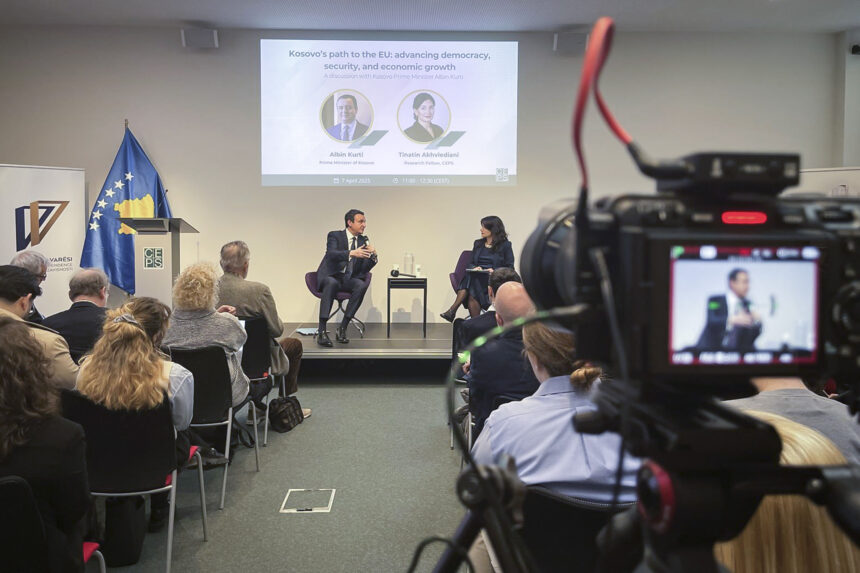Acting Prime Minister of Kosovo, Albin Kurti, has called on the European Union to advance Kosovo’s application for EU membership, emphasizing that Kosovo has no “Plan B” and remains fully committed to European integration.
Speaking at a discussion organized by the Centre for European Policy Studies (CEPS) in Brussels, Kurti stated, “The time has come for Kosovo and the EU to intensify joint efforts to overcome the obstacles hindering Kosovo’s accession process.”
He urged the EU to launch the Questionnaire for Kosovo to assess its institutional and legal capacities for membership and to prepare a merit-based opinion on Kosovo’s candidate status.
Kosovo’s Long Wait for Candidate Status
Kosovo submitted its application for EU membership on December 15, 2022, and remains the only country in the Western Balkans without official candidate status. In contrast, countries like Ukraine and Moldova secured candidate status within months, while others, such as Albania and Bosnia and Herzegovina, waited five to six years.
Just hours before Kurti’s remarks, EU foreign policy chief Kaja Kallas stressed that neither Kosovo nor Serbia can advance on the EU path without normalizing relations. Speaking on the stalled dialogue between the two sides, Kallas noted that the EU’s special envoy for the dialogue, Peter Sorensen, who took office in February, is currently reviewing the situation.
Although Kosovo and Serbia agreed on a roadmap to normalize relations in 2023 under EU mediation, both sides have faced criticism for failing to implement the agreement. Political dialogue at the highest level has been frozen since September 2023 due to escalating tensions in northern Kosovo, with only technical talks taking place.
Kurti Highlights Kosovo’s Achievements
Kurti highlighted Kosovo’s reform efforts and alignment with EU standards, mentioning Kosovo’s military aid to Ukraine and its consistent support for the EU’s Common Foreign and Security Policy (CFSP).
“Kosovo is a reliable EU partner and firmly believes in its European future,” Kurti said, calling on the EU to demonstrate that it views Kosovo as part of its future.
He also criticized delays in the EU enlargement process, warning that the prolonged stagnation is diminishing public trust, especially among young people in the region.
The Road Ahead for Kosovo
Kosovo’s path to EU membership is expected to be more challenging compared to countries like Croatia, which joined the EU in 2013 after a 12-year process. Unlike Croatia, Kosovo faces the additional hurdle of not being recognized by five EU member states: Spain, Romania, Cyprus, Greece, and Slovakia.
EU membership requires fulfilling the Copenhagen Criteria, which include democratic stability, rule of law, and a functioning market economy. Western Balkan countries must also meet additional conditions outlined through the Stabilization and Association Process.
Kosovo signed its Stabilization and Association Agreement (SAA) with the EU in Strasbourg on October 17, 2015, marking a key step toward integration. However, without universal recognition, Kosovo’s EU journey is set to be uniquely complex.







